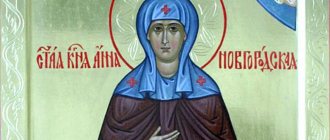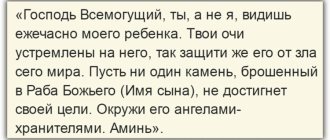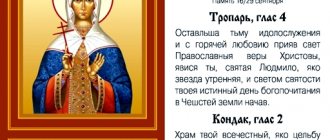early years
Svyatoslav was the only son of Prince Igor Rurikovich and Princess Olga. The exact date of his birth is unknown. According to the Ipatiev list, the future ruler of Kievan Rus was born in 942, but this information was not confirmed in other historical sources.
According to the chronicle version, in the fall of 945, the Kiev prince was killed by the Drevlyans for collecting an exorbitant tribute from them. So three-year-old Svyatoslav became the heir to the throne, but due to his young age, the reins of power passed to his mother Olga, who became regent for her young son.
A year after the death of Prince Igor, his widow organized a military campaign against the Drevlyans. Little Svyatoslav opened the battle, which ended in the complete defeat of the Drevlyans.
920 is the most likely year of birth
There is evidence from foreign historians who lived shortly after that time, and even from contemporaries. And all Russian chronicles came to us in manuscripts no earlier than the 14th century. The Byzantine Emperor Constantine VII, in his work “On the Administration of the Empire,” compiled around 948-952, says that Prince Sfendoslav, the son of Ingor, ruled in “Nemogarda” (most people mean Novgorod by this, but this is not necessary). That is, in any case, he was not with the regent mother. But what use could a little boy have in governing on the outskirts of the state? It is more likely that Svyatoslav was already an adult husband. The German historian Thietmar of Merseburg says that Vladimir Svyatoslavich, who baptized Rus', died in old age, and this was in 1015. Meanwhile, the “Chronicle of Pereyaslavl-Suzdal” directly reports that Vladimir was born in 942. How, in this case, could he be born from Svyatoslav, if he himself was born this year? On the other hand, how could Vladimir be an old man by 1015 if he was born somewhere in the 60s of the previous century? But everything falls into place if we assume that in the ritual of mounting a horse we are talking about the grandson of Igor and Olga - young Vladimir, born in 942. And Svyatoslav, being already an adult by that time, ruled independently far from Kyiv. In addition, the chronicle reports that Igor was the son of Rurik. Therefore, he must have been born no later than 880. So, until the age of 62, Igor had no sons? And taking this into account, the year 920 as the date of birth of Svyatoslav looks much more plausible. Finally, the Byzantine statesman and historian Leo the Deacon, the only person who could personally see Svyatoslav, of those whose testimonies have been preserved, describes in detail the appearance of the “prince of the Scythians” during his negotiations with Emperor John Tzimiskes. Lev speaks of Svyatoslav’s shaved head and beard, forelock, long mustache and earring, and his neatness in clothing, but does not mention a word about his age. Meanwhile, if he were significantly younger than the emperor, the historian would probably not fail to note this. John Tzimiskes was born in 925. This means that Svyatoslav was about the same age as him. Date of birth - 920 - and here it is more plausible.
Beginning of reign
Svyatoslav Igorevich made his first independent campaign in 964, when he sent a squad to the Volga, to the land of the Vyatichi. However, the prince did not get involved in the battle with the Vyatichi, but directed all his forces towards the Khazar Kaganate. Thus, in 965, the once powerful state that controlled transit trade routes was defeated. As a result, Volga Bulgaria was forced to pay a considerable tribute to Prince Svyatoslav and not limit the trading activities of Russian merchants.
The invasion of the Kyiv prince into the North Caucasus, where the allies of the defeated Khazaria lived: Yasses, Alans, Kasogs, was also successful. On the way home, Svyatoslav Igorevich struck a blow at the Vyatichi, forcing them to recognize the supreme power of Kyiv and regularly pay tribute.
The leader of the Russian squad in the service of the Khazars?
So, all of Svyatoslav’s political activity takes place to the south and southeast of Rus'. But what, in other directions did Rus' not have any problems with its subjects and surrounding peoples? At the same time, the vectors of all Svyatoslav’s campaigns diverge, as it were, from one center, lying somewhere in the Northern Azov region. His enemies were the historical opponents of Khazaria. The Vyatichi were tributaries of the Khazars, the Yases and Kasogs too, and the Khazars often fought with Byzantium. And Kyiv, according to some news, was founded by the Khazars, so the expression that he brought many captive Ossetians and Circassians to settle in Kyiv may have a different meaning than is usually believed. The news of Svyatoslav's capture of the White Vezha may reflect his actual seizure of power in the Khazar Kaganate, after which he tried to bring the former tributaries of the Kaganate to submission. There is no evidence that “Nemogard” is Novgorod, especially since for the middle of the 10th century the existence of Novgorod is doubtful according to archaeological data. Maybe this is Tmutarakan or another Russian trading post in the south? And perhaps, having abandoned Khazaria, Svyatoslav simply wanted to create his own state in the Northern Black Sea region from the Balkans to the Caucasus? Let us also pay attention to the fact that Svyatoslav is the first Russian prince to bear a Slavic name. And most of his sons are called in the Slavic way - Yaropolk, Vladimir. Is he genetically related to the former rulers of Rus' who bore Scandinavian names - Rurik, Oleg, Igor, Olga? Legitimate questions that have no answers yet.
Domestic policy
Once on the princely throne, Svyatoslav set himself the main task: to strengthen power by strengthening military power.
When studying the short biography of Svyatoslav Igorevich, it is worth noting that he was practically not interested in domestic politics, and his mother, Princess Olga, dealt with all government issues. The prince was much more attracted to military campaigns and battles with the enemies of Kievan Rus.
But, despite the indifference to the internal affairs of the state, Svyatoslav Igorevich made some changes. Thus, he organized a fundamentally new taxation system. From now on, in the Old Russian state, in its different parts, graveyards were formed - special places where money was collected from local residents.
Foreign policy
Prince Svyatoslav fought several major wars, among which the most important were the battles with the Bulgarian kingdom and Byzantium.
The invasion of Bulgaria took place in 968 and ended in victory for the squad of Svyatoslav Igorevich. Having taken many cities, the Kiev prince settled at the mouth of the Danube, in Pereyaslavets, where tribute was sent to him from the defeated Bulgarians.
In the same year, the Pechenegs attacked Kyiv, and the prince had to urgently return home. A year later, Princess Olga died, and Svyatoslav Igorevich was forced to bring his sons into the government of the state. He placed his son Yaropolk in the Kiev reign, Oleg in the Drevlyan reign, and Vladimir in the Novgorod reign.
The rulers of the Bulgarian state decided to conclude an agreement with Prince Svyatoslav in order to jointly resist Byzantium. In 970, the allied army attacked the Byzantine state. Despite the numerical advantage, Prince Svyatoslav Igorevich was defeated in a general battle.
At the negotiating table, the Byzantine emperor and the Kiev prince came to the conclusion that Svyatoslav Igorevich undertakes to leave Bulgaria, but at the same time he can restore trade relations with Byzantium. From now on, the eastern part of the Bulgarian state came under the rule of Byzantium, and the western lands gained independence.
Svyatoslav
Svyatoslav Igorevich , Grand Duke of Kiev, circa 940-972; his mother, Olga, ruled during his childhood, Svyatoslav’s educator was Asmud, and the governor was Sveneld. Invited by the Byzantine emperor to help against the Danube Bulgarians, in alliance with the Hungarians and Pechenegs he captured Bulgarian land and became dangerous to Byzantium. He was distracted by sending the Pechenegs to Kyiv. In 971, Svyatoslav again appeared in Bulgaria, but Emperor John Tzimiskes forced him to make peace. On the way to Kyiv, Svyatoslav tried to break through the Pecheneg detachments that occupied the rapids of the Dnieper, but was killed. Small Encyclopedic Dictionary of Brockhaus and Efron
Svyatoslav Igorevich (birth year unknown - died 972 or 973), Grand Duke of Kiev (about 945-972), commander. Under him, until 969, the Kyiv state was largely ruled by his mother, Princess Olga, since Svyatoslav Igorevich spent almost his entire life on campaigns. In 964-966. Svyatoslav Igorevich freed the Vyatichi from the power of the Khazars and subjugated them to Kyiv. In the 60s X century defeated the Khazar Kaganate and destroyed the Khazar cities of Sarkel (on the Don) and Itil, the capital of the Kaganate. He fought with the Volga-Kama Bulgarians and took their capital on the Volga. In the North Caucasus, Svyatoslav Igorevich captured the Khazar fortress of Semender, defeated the Yasses and Kasogs. In 967 or 968, using the proposal of Byzantium, which sought to weaken its neighbors Rus' and Bulgaria by pitting them against each other, Svyatoslav Igorevich invaded Bulgaria and settled at the mouth of the Danube, in Pereyaslavets. The Byzantine government, in order to prevent the establishment of Svyatoslav Igorevich in Bulgaria, sent the Pechenegs to Kyiv. Svyatoslav Igorevich returned to defend the capital, but, having repulsed the Pechenegs, he again came to Bulgaria. Around 971, in alliance with the Bulgarians and Hungarians, he began to fight with Byzantium. After a battle with a superior Byzantine army at Bolshoi Preslav and Dorostol, having withstood a 3-month siege with his army, Svyatoslav Igorevich concluded peace with Emperor John I Tzimiskes in 971. On the way back to Kyiv, Svyatoslav Igorevich died at the Dnieper rapids in a battle with the Pechenegs, who had been warned by the Byzantine government about his return.
Literature:
- Rybakov B. A., Ancient Rus'. Tales. Epics. Chronicles. M., 1963.
Great Soviet Encyclopedia
Svyatoslav Igorevich (?-972) - Grand Duke of Kiev, Prince of Novgorod (964-972), commander, son of Prince Igor Rurikovich and Princess Olga.
After the death of his father, who was killed by the Drevlyans in 945, Svyatoslav remained in the arms of his mother; his educators were the “breadwinner” Asmud, close to the princely throne, and the governor Sveneld.
In 945, Olga, having decided to take revenge on the Drevlyans for the death of her husband, took with her little Svyatoslav, who grew up among the warriors. Sitting on a horse at the head of the squad, he threw a spear towards the enemies. It flew between the horse's ears and fell at his feet. The action of the little prince inspired the warriors (“The prince has already begun the battle, let’s follow him, squad!”) and the Russians won the battle. The chronicler presents Svyatoslav as a man who loved military affairs.
From 964 he ruled independently. Leaving his mother, Princess Olga, to rule Kiev, Svyatoslav went on a campaign already in 965 and subsequently spent most of his life in campaigns and battles, only occasionally, mainly in critical situations, visiting the capital city and his mother.
At the beginning of 965, having conquered the lands of the Vyatichi (ancestors of modern Muscovites), he moved further to the southeast to the Khazar Kaganate and Volga Bulgaria. The lands of the Vyatichi, as well as the territory he conquered along the Desna River, gave him the opportunity to control the Great Volga Route, which connected Scandinavia, Rus' and Central Asia.
Having crossed the Volga, he won victories one after another for several years. He conquered the main Khazar citadel - the Sarkel fortress (Belaya Vezha) on the Don and the capital of the Kaganate, the city of Itil (near modern Astrakhan, in the lower reaches of the Volga), then sharply turned south and reached the Cimmerian Bosporus.
Having put an end to the Khazars by capturing their Semender fortress in the North Caucasus, Svyatoslav defeated the Yas and Kasog tribes (the ancestors of modern Cherks and Ossetians) there who tried to resist him. Even then, Svyatoslav became famous for the fact that, before attacking the enemy, he sent a messenger ahead with the words: “I’m coming to you!” (that is, “I’m coming at you!”).
Having seized the initiative in armed conflicts, Svyatoslav quickly led the offensive and thereby achieved success. The Tale of Bygone Years says that “he moved and walked like a pardus (that is, a cheetah), and fought a lot. On campaigns, he did not carry carts or cauldrons with him, did not cook meat, but thinly sliced horse meat, or animal meat, or beef and, roasting it on coals, ate it. He didn’t even have a tent, but he slept with his saddle cloth over his head. All his other warriors were the same.”
At the end of the 950s. Together with his mother, Princess Olga, he visited the capital of Byzantium, Constantinople (Constantinople). The chronicler reports that the Byzantine emperor Constantine Porphyrogenitus was struck by the simplicity and modesty of the appearance of the prince-hero. According to the Byzantine chronicler Leo the Deacon, the prince was “of medium height and very slender, had a broad chest, a flat nose, blue eyes and a long shaggy mustache. The hair on his head was cut, with the exception of one curl - a sign of noble birth; in one ear hung a gold earring decorated with a ruby and two pearls. The prince's whole appearance was something gloomy and stern. His white clothes only differed from other Russian [clothes] in their cleanliness.” The only measure of the correctness of actions for Svyatoslav was the opinion of his squad, the ideal was the glory of a selflessly brave warrior who never changed the opinion of the “rada” (council) of his soldiers. Having received baptism, Svyatoslav’s mother tried to persuade her son to also accept Christianity, but he refused. The chronicle put the following words into his mouth: “How can I alone accept a different faith? My squad will mock,” and he remained a pagan.
In 967, the Byzantine Emperor John I Tzimiskes, concerned about the successes of the Russian troops and trying to weaken his neighbors, conspired with the nomadic Pecheneg tribe.
Just at this time, Svyatoslav with a squad of 10 thousand soldiers invaded Bulgaria and defeated the army of the Bulgarian Tsar Peter. He had already reached the mouth of the Danube, where he “set up” the city of Pereyaslavets (Maly Pereslav). The location of this city struck him so much that he set out to make this city the capital of all Rus' and, according to the chronicler, he told his mother: “I don’t like to sit in Kyiv, I want to live in Pereyaslavets on the Danube - there is the middle of my land! Everything good comes there: gold, drags, wines and various fruits from Greece, silver and horses from the Czech Republic and Hungary, furs and wax, honey and fish from Rus'.” There is evidence that he even sat down to reign in Pereyaslavets and then “received the first tribute from the Greeks.”
However, having received news of Svyatoslav’s establishment in Bulgaria, Byzantium in 968 forced the Pechenegs to attack Kyiv. Svyatoslav had to leave Bulgaria and hasten to defend the city where his mother ruled. The Pechenegs were “finished off in the field,” but Svyatoslav did not forget the treachery of Byzantium.
In 968, having buried his mother, Svyatoslav handed over the internal affairs of his state to his grown-up sons. He gave Kyiv to his son Yaropolk (born from his first wife - the daughter or sister of the Hungarian king, and according to other sources - the Kiev boyar - Predslava). The second son, the illegitimate son of Vladimir (nicknamed in the future the Red Sun, whose mother was Malushi or Malfred, the daughter of the Drevlyan prince Mal, the former housekeeper of the princess), was assigned to Novgorod. The third son, Oleg (from his wife Esther, daughter of Prince Oleg of Dregovich), received the Drevlyan lands (now the area of modern Chernobyl) for management.
In 970, Svyatoslav began a new military campaign. With a large army (about 60 thousand) he went to Bulgaria, where he set the task of concluding an agreement with the Bulgarians and with the Hungarians against Byzantium. According to the testimony of the Byzantine chronicler Leo the Deacon, in order to bring the rebellious into obedience, he impaled 20 thousand prisoners, thereby horrifying the Bulgarians, and everyone obeyed him. He took Philippopolis (Plovdiv) with a victorious march, crossed the Balkans, conquered Macedonia, devastated Thrace and approached Constantinople. John I Tzimiskes organized the defense. After bloody battles, Svyatoslav’s troops with the Byzantine army near Greater Preslav and Dorostol and Svyatoslav’s 3-month siege of enemy fortifications, both sides suffered heavy losses, but in June 971 he still took the Byzantine fortifications. It was during those battles that Svyatoslav, according to legend, said to his squad: “We will not disgrace the Russian land, but we will lie here as bones, for the dead are not ashamed. If we run, it will be a shame for us.” In one of the battles, Svyatoslav was seriously wounded, lost a lot of blood, and was almost captured. Being forced to make peace with Byzantium, he and the remnants of his squad went home. At the Dnieper rapids, he met for the last time with the Pechenegs, warned by Byzantium about his return, and died in a battle with the Pecheneg prince Kurem near the island of Khortitsa. The prince's body was captured by the Pechenegs, and from his skull, bound in gold, they made a bowl for feasts. Of the huge army that left Bulgaria, only a quarter of it returned to Rus' (according to legend, about 22 thousand soldiers).
Although the Balkan conquests by Russia were eventually lost, Byzantium nevertheless undertook, after Svyatoslav’s campaigns, to provide a free trade regime for Rus'.
After the campaigns of Svyatoslav 965-972. The territory of Rus' increased sharply, stretching from the Middle Volga region to the Caspian Sea and further along the North Caucasus and the Black Sea region to the Balkan lands of Byzantium. Volga Bulgaria was defeated, Khazaria was completely defeated, Byzantium was weakened and frightened. Rus' gained the opportunity to conduct extensive trade with the East. Russian military and trading outposts arose at different ends of the coast of the Russian (now Black) Sea. The outermost of them were Tmutarakan (now Taman) and Pereyaslavets. The border of Rus' was very close to Byzantium.
Historians give contradictory characterizations of Svyatoslav’s actions. Some emphasize his thoughtless desire to seize foreign lands. Their opinion coincides with the attitude of some contemporaries from his circle towards Svyatoslav’s campaigns: “You, prince, are looking for a foreign land!” - the chronicler quotes them as saying. S. M. Solovyov, who represented the “state school” in Russian historiography, wrote that in the chronicle Svyatoslav is presented as “the image of a warrior who, with his selected squad, left his native land for distant exploits, glorious for him and useless for his native land.” A number of scientists note the prince’s desire to strengthen and elevate Rus' and strengthen its international position (B. A. Rybakov, A. N. Sakharov). They emphasize that Svyatoslav defeated Volga Bulgaria, completely defeated Khazaria, weakened the powerful Byzantium, founded military and trading outposts, they emphasize that these victories were thought out, prepared and skillfully carried out by him not for the sake of satisfying personal ambition, but were a response to the challenge of the time - the desire Byzantium pushes Rus' away from the shores of the Black Sea. One thing is indisputable: Svyatoslav was a successful commander and a prominent statesman for his time, who sought to strengthen the international position of Rus'.
Archaeologists suggest that several ancient swords with a silver pattern on the handles, found during the construction of Dneprostroy in 1933 at the bottom of the Dnieper, belonged to Svyatoslav’s soldiers. Lev Pushkarev
Literature:
- The Tale of Bygone Years. T. 1-2. M.-L., 1950;
- Bogdanov A.P. Svyatoslav. M., 1992;
- Rybakov B. A. Ancient Rus'. Tales. Epics. Chronicles. M., 1963;
- Ryzhov K. All the monarchs of the world, Russia. M., 1998;
- Sakharov A. N. Diplomacy of Svyatoslav. M., 1991;
Encyclopedia "Around the World" Svyatoslav Igorevich - Grand Duke of Kiev. The chronicle dates the birth of Svyatoslav to 942. At the time of his father’s death, Svyatoslav was still a baby and the management of the principality during his childhood was in the hands of his mother Olga. Svyatoslav's teacher was Asmud, and the governor was Sveneld. As soon as Svyatoslav matured, he discovered the typical features of a warrior prince; Zemstvo affairs interested him little; he was drawn to military enterprises in distant lands. Of the Slavic tribes east of the Dnieper, only the Vyatichi were at that time outside the influence of the Kyiv princes and paid tribute to the Khazars. Because of the Vyatichi, Svyatoslav entered into a fight with the Khazars and penetrated the Volga and even into the Ciscaucasia, where he encountered the Yases and Kasogs. Then Svyatoslav turned his attention to the South - to Danube Bulgaria. The initiative in this enterprise of Svyatoslav came from the Byzantine emperor Nikephoros Phocas, who, wanting to protect Byzantium from dangerous neighbors - the Bulgarians, sent to Svyatoslav a proposal to attack Bulgaria. Svyatoslav came to Bulgaria with his allies - the Hungarians, Pechenegs and others - as a friend of Byzantium. The success of Svyatoslav’s campaign was enormous; he occupied a number of Bulgarian cities and began to strive for complete possession of Bulgaria. The Greeks soon felt that they had acquired an even more dangerous neighbor in him. Then Nikifor sent the Pechenegs to Kyiv, and Svyatoslav had to return to his fatherland, but already in 971, having planted his sons in Rus', he again appeared in Bulgaria. Meanwhile, Nikephoros Phocas' successor, John Tzimiskes, made peace with the Bulgarians and Svyatoslav had to deal with both the Greeks and the Bulgarians; although there was a Russian party in Bulgaria, the movement against Svyatoslav was strong. To break the Greeks, Svyatoslav moved beyond the Balkans and was initially successful, but then had to make peace with the Greeks and leave Bulgaria. He went in boats to the Dnieper rapids, but the rapids were occupied by the Pechenegs. Svyatoslav waited until spring and again tried to pass the rapids, but was killed in a battle with the Pechenegs, who, according to legend, made his cup from his skull (972).
https://rulex.ru/01180088.htm
Svyatoslav Igorevich (died in 972). A brave warrior, according to the chronicler, who openly challenged his enemies: “I’m coming to you!”, Svyatoslav made a number of successful campaigns. He freed the Vyatichi tribe, who lived in the Oka basin, from paying tribute to the Khazars, defeated the Volga Bulgarians and the powerful Khazar Khaganate, making a victorious campaign in 965 on the Lower Volga, the Northern Caucasus and the Azov region.
In the last years of his reign, Svyatoslav actively intervened in the war of Byzantium with the Danube Bulgarians who rebelled against its rule and won a victory over them. The Byzantine Emperor John Tzimiskes, alarmed that Svyatoslav was seeking to gain a foothold in the Danube cities, attacked the Russian squads, besieged them in Dorostol and forced them to accept battle. The Greeks were defeated, and Svyatoslav moved towards Constantinople. The emperor had to pay off with generous gifts. Having concluded peace, the prince decided to return to Kyiv for new wars. But at the Dnieper rapids Svyatoslav was waylaid and killed by the Pechenegs. The Pecheneg prince ordered a cup to be made from his skull.










